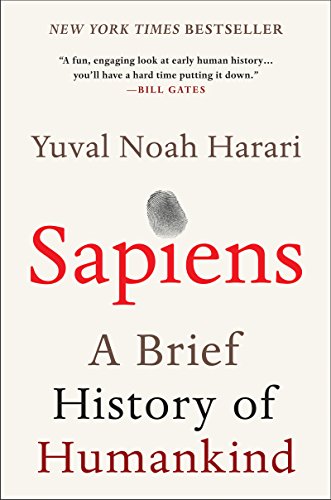

This article is an excerpt from the Shortform summary of "Sapiens: A Brief History of Humankind" by Yuval Noah Harari. Shortform has the world's best summaries of books you should be reading.
Like this article? Sign up for a free trial here .
Is there a difference between “sex” and “gender”? What is it? What is the “sex vs. gender” debate?
Sex is determined by a person’s genes, whereas gender is determined by whether you fit society’s mold of “man” or “woman.” Although related to sex, gender isn’t determined by your genes.
We’ll cover the sex vs. gender debate and why this distinction has been so hard to grasp throughout history.
The Sex Vs. Gender Debate
One hierarchy that is based in biology is the division of Sapiens into males and females. This is the origin of the sex vs. gender debate. Most people believe that since sex is biological, so is gender.
In order to understand which elements of the men/women divide are natural, or biological, and which are socially constructed, we need to understand the difference between “sex” and “gender.”
- Sex: A person’s sex, male or female, is determined by whether he or she is born with one X chromosome and one Y chromosome (male) or two X chromosomes (female). This is a biological or natural distinction.
- Gender: A person’s gender, man or woman, is related to his or her sex, but not strongly. Whether you are a man or woman (or non-binary or genderfluid) is not based on your biology. It’s influenced by how you fit (or choose to fit) the “man” or “woman” mold created by your particular culture’s myths about men and women. This is a social or cultural distinction.
Because what makes someone a man or woman is based on a culture’s myths, the definitions of “man” and “woman” have varied greatly across the world and over the centuries. “Masculine” and “feminine” are also subjective terms based on myth, not biology. Because people are biologically male or female but no one is inherently masculine or feminine, people are pressured to relentlessly prove their masculinity or femininity throughout their lives through rituals such as getting into fights, applying makeup, watching football, and wearing dresses. It’s confusion regarding the difference between sex and gender that spawns the sex vs. gender debate.
While sex characteristics have remained constant over time, characteristics of masculinity and femininity have changed dramatically. This is one way you know that these characteristics are social rather than biological. For example, in the 18th century, King Louis XIV was the picture of virile masculinity, shown in an official portrait in a long curly wig, tights, high heels, and colorful, sumptuous fabrics. In contrast, a portrait of Barack Obama in a suit shows the ideal of masculinity in the 21st century: dark colors and simple, streamlined lines.
Natural Versus Unnatural Behavior
Many societies have used biological differences to argue that males and females should have certain rights and behave in certain ways. When an individual or group does something society doesn’t approve of, it’s called “unnatural.”
For instance, throughout history, society has held varying views on the naturalness of homosexuality. In today’s Greece, society holds that females should be sexually attracted to males and vice versa, and that this is a “biological reality” because humans evolved the ability to have sex to procreate, and homosexual relationships do not result in procreation. They believe homosexuality is unnatural. But cultures of ancient Greece saw homosexuality as natural and productive, a way to cement male bonds. Both Achilles in the Iliad and Alexander the Great had male lovers.
So who’s right? Modern or ancient Greece? One way to determine if a behavior is “biologically determined” or a “biological myth” is to remember that “Biology enables, Culture forbids.” From the perspective of biology, if something is possible, it’s natural. Conversely, if something is unnatural, it can’t exist in nature, making it impossible. In this way, biology enables. If something is forbidden, it’s the culture that’s doing the forbidding, not nature. This also often gets left out of the sex vs. gender debate: sex is natural, gender is cultural.
Biological Nature v. Theological Nature
When we argue that men shouldn’t have sex with other men because sex is meant to produce children, it sounds like we’re making a biological argument. But it’s actually a Christian one. Much of the sex vs. gender debate hinges on the notion of “theological nature.”
Theologians believe that God created each of our organs for a specific purpose, and if we use them for any other purpose, that use is “unnatural.” Therefore, to a theologian, because God didn’t intend sex organs to be used for anything other than procreation, homosexuality is unnatural. This is “theological nature.”
But according to “biological nature,” God doesn’t create organs. Evolution does. And evolution doesn’t “create” an organ for a specific purpose. How animals use their organs changes throughout the history of their species.
For example, mouths evolved so organisms could get nutrients from their environments. If any other use of the mouth is “unnatural,” we have to ban kissing and speaking. But the fact that our “worm-like ancestors” didn’t kiss or speak doesn’t make these behaviors unnatural for us.
Similarly, many animals use sex for purposes other than procreation. For instance, chimpanzees use sex to form alliances and ease tensions. These uses aren’t unnatural simply because they weren’t the original purposes of sex. If biology makes these behaviors possible, they’re natural. This should clarify the sex vs. gender debate: Sex and gender are two different things, and one is biological and the other is cultural.
———End of Preview———

Like what you just read? Read the rest of the world's best summary of "Sapiens" at Shortform . Learn the book's critical concepts in 20 minutes or less .
Here's what you'll find in our full Sapiens summary :
- How Sapiens outlived and outlasted the 8+ other human-like species on Earth
- The 3 critical revolutions in human existence that led to our domination of the planet
- How much of what powers our world today is really just a shared mass delusion
- What the future of humanity might look like






